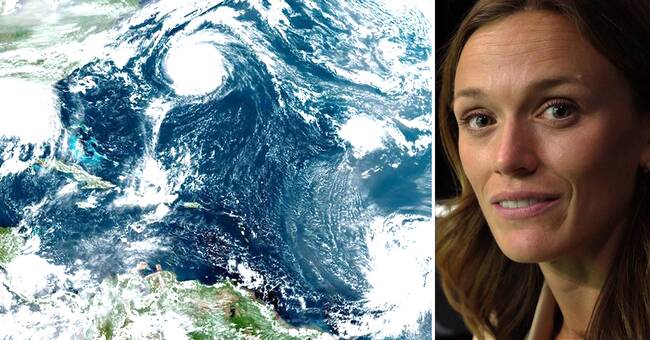We are in the middle of the hurricane season - but already the names are running out.
It is the World Meteorological Organization, WMO, which determines the names well in advance based on which letter it is in the order and where in the world the storm occurs.
The names must be familiar to the population in the countries that are at risk of being affected - but there are only a limited number of names.
The next storm will be called Wilfred and then you have to switch to the Greek alphabet.
Thus, the storms will be called, for example, Alpha 2020 or Beta 2020 (the year is added after the letter).
The next storm will be named Wilfred - after that the names in the Romanesque alphabet are over for this season.
Then Epsilon makes its entrance
The last time the list "ended" was in 2005. It was an unusually active season when, among other things, Katrina pulled in over New Orleans.
So when is it time for hurricane epsilon to strike?
- We have a good while left in the hurricane season and if six storms form, then Epsilon will make its entrance, says SVT Nyheter's meteorologist Maria Augutis.
What's the weirdest name for a hurricane you've ever seen?
- There's a whole bunch.
How about Beulah, FiFi or Hortense?
And we must not forget Georges (pronounced Zhorzh) from 1998.
Can different hurricanes have the same name?
- Yes, since the number of names is limited, the same name can be used again and again.
But the name of particularly devastating storms is usually deleted, such as Katrina, Andrew and Matthew.
When the names end, WMO switches to the Greek alphabet.
Has only happened once before
How is the hurricane situation right now?
- Hurricane Sally has pulled in over Alabama as a category 2 hurricane and further east, storm Paulette is swirling.
But not only that, right now there are three other tropical storms across the Atlantic - Rene, Teddy and Vicky, says Maria Augutis and continues:
- According to the Hurricane Center NHC, it has only happened once before that five storms of this type are formed simultaneously in the Atlantic, it was 1971.
Can any conclusions be drawn from this?
- This has been an unusually active season with more storms than usual and this is partly due to the sea water being unusually warm, much warmer than what is normal in parts of both the Atlantic and the Gulf of Mexico.
- The warm water acts as fuel for the strong storms and research shows that hurricanes will continue to be stronger in the future due to the rising sea temperature.

